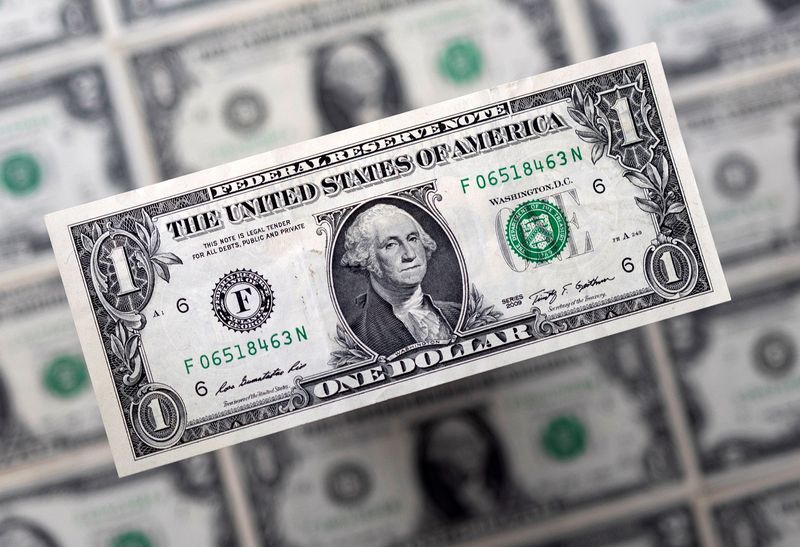A look at the day ahead in U.S. and global markets from Mike Dolan
A stressful start to a packed week for world markets saw the U.S. dollar feed off a sour brew of geopolitical, economic policy, international trade and corporate tensions.
Even though U.S. bond markets are partly closed on Monday for the Columbus Day holiday, implied Wall St volatility gauges climbed again ahead of Thursday's critical U.S. consumer price inflation reading for September and the start of the third-quarter earnings season.
The VIX 'fear index' jumped almost 3 points to more than 33 early on Monday - its highest for the month and at a level that would mark its highest close since June if sustained later in the day. And as a fourth 75 basis-point Fed rate hike is now fully priced yet again, the dollar's DXY index climbed again - and traders started to eye year-end trading stress too.
With the annual meetings of the International Monetary Fund and World Bank in Washington as a backdrop, the week kicked off with further tremors from Russia's faltering invasion of Ukraine and mounting trade tensions between the U.S. and China.
With last week's warning from Advanced Micro Devices (NASDAQ:AMD) and Micron Technology (NASDAQ:MU) ringing in the ears, the chip sector shivered into the new week.
Shares in Chinese tech giants Alibaba (NYSE:BABA) Group and Tencent as well as in chipmakers slumped on Monday, as investors were spooked by new U.S. export control measures aimed at slowing Beijing's technological and military advances.
The Biden administration published a sweeping set of export controls on Friday, including a measure to cut China off from certain semiconductors made anywhere in the world with U.S. equipment. The measures could amount to the biggest shift in U.S. policy on exporting technology to China since the 1990s.
Returning after a week of closures, the broad Shanghai stock index was down 1.6%, Hong Kong was down almost 3% and the offshore yuan weakened against the dollar.
Elsewhere, UK finance minister Kwasi Kwarteng headed to Washington for the IMF meeting - following criticism by the Fund of his controversial 'mini budget' - and the UK Treasury brought forward its spending review to Oct 31.
The pound, UK government bonds and British stock indices all weakened and the Bank of England moved to ease concerns about the expiry at the end of this week of its emergency programme to calm turmoil in the gilt market, including a doubling of the maximum size of its planned debt buy-back on Monday.
Key developments that should provide more direction to U.S. markets later on Monday:
* Columbus Day holiday - U.S. bond markets closed

* U.S. Federal Reserve Vice Chair Lael Brainard and Chicago Fed chief Charles Evans speak. European Central Bank chief economist Philip Lane speaks
* International Monetary Fund and World Bank annual meetings get underway in Washington
(By Mike Dolan; Editing by Hugh Lawson mike.dolan@thomsonreuters.com. Twitter: @reutersMikeD)